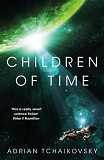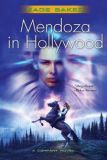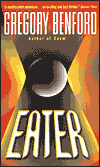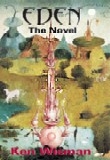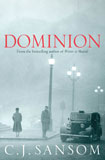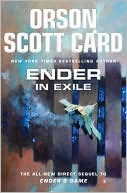
Ender in Exile, by Orson Scott Card
Book Review by Lyndon Perry
Have you read this book?
I like Orson Scott Card. On a number of different levels. First (and maybe foremost, I'm not sure since the levels are interrelated) for his inclusion of religion, spiritual themes, and discussion of God as a natural and integral part of his writings in general, and the Ender universe in particular. "Most scientists believe in God," states one of the xenobiologists in Ender in Exhile (p. 184) -- and reading Card you accept it at face value. Thank you! So much of SF is devoid of even a hint of theological pondering that one gets the impression some authors are either simply clueless or too skittish to engage the subject. I admire Card for his candor, and while at times his Mormonism seeps through, his themes are, by and large, universal in scope and therefore applicable to theists and non-theists alike.
Of course, the Ender canon lends itself quite nicely to big ideas, which must needs include the spiritual. And this too is why I enjoy Card's books. He deals with weighty matters like war and its result (genocide/xenocide); guilt and redemption (Ender's eternal quest vis-à-vis the Hive Queen larva); and broken relationships and reconciliation (especially in the familial context). This latest addition to the Ender saga tackles these issues (and others) and does a fine job exploring and even resolving some of them.
Ender in Exile (Tor Books, 2008) is marketed as "The All-New Direct Sequel to Ender's Game" and while that is true, it's also (and possibly better understood as) a summary review of the series as a whole. It ties up a number of loose ends -- or gives context to so many end strings -- that were left dangling (or were simply incomprehensible) in the two earlier sequels, Speaker for the Dead and Xenocide. If you enjoyed Ender's Game but felt lost as the series progressed, then Ender in Exile is a satisfying missing-link to the overall narrative. I wouldn't recommend it, however, unless you are familiar with that initial story and its attendant science (ansible communication!), characters (the Wiggins children), and plot (the war games, of course).
Finally, I enjoy Card -- and enjoyed this book -- for its writing. Ender in Exile is a plain good read and Card is a plain good writer. He may not approve of the comparison (nor will SF purists) but I think of him as the John Grisham of science fiction. His sometimes staccato style, snappy dialog, and surprise twists make for a quick and entertaining read while at the same time imparting eternal values that could very well overwhelm the reader if attempted by a less deft hand. In my view, Card excels at combining wit and wisdom into a profound story; which is, or should be, the hallmark of this genre.
Of course, the Ender canon lends itself quite nicely to big ideas, which must needs include the spiritual. And this too is why I enjoy Card's books. He deals with weighty matters like war and its result (genocide/xenocide); guilt and redemption (Ender's eternal quest vis-à-vis the Hive Queen larva); and broken relationships and reconciliation (especially in the familial context). This latest addition to the Ender saga tackles these issues (and others) and does a fine job exploring and even resolving some of them.
Ender in Exile (Tor Books, 2008) is marketed as "The All-New Direct Sequel to Ender's Game" and while that is true, it's also (and possibly better understood as) a summary review of the series as a whole. It ties up a number of loose ends -- or gives context to so many end strings -- that were left dangling (or were simply incomprehensible) in the two earlier sequels, Speaker for the Dead and Xenocide. If you enjoyed Ender's Game but felt lost as the series progressed, then Ender in Exile is a satisfying missing-link to the overall narrative. I wouldn't recommend it, however, unless you are familiar with that initial story and its attendant science (ansible communication!), characters (the Wiggins children), and plot (the war games, of course).
Finally, I enjoy Card -- and enjoyed this book -- for its writing. Ender in Exile is a plain good read and Card is a plain good writer. He may not approve of the comparison (nor will SF purists) but I think of him as the John Grisham of science fiction. His sometimes staccato style, snappy dialog, and surprise twists make for a quick and entertaining read while at the same time imparting eternal values that could very well overwhelm the reader if attempted by a less deft hand. In my view, Card excels at combining wit and wisdom into a profound story; which is, or should be, the hallmark of this genre.
|
Click here to buy Ender in Exile, by Orson Scott Card on Amazon
|
Ender in Exile, by Orson Scott Card on Amazon

| More Books You Might Like |
Comment on Ender in Exile, by Orson Scott Card
